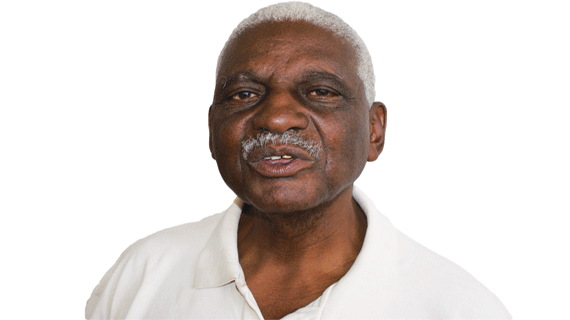
IT has been said over and over again that cattle took first place in the life of the Ndebele people.
They played a social, economic and a religious role. A man who had no cattle did not have any social status, had no economic where-withal and was unable to perform important religious acts.
He was just a man of no account whatsoever. Wealthy men kept large herds numbering hundreds of cattle. Sometimes strong words were used to describe a man who had no cattle: Ongelankomo yinja! So cattle played a very important role in the life of the Ndebele to give a man dignity and a high social status.
To show how much they valued cattle, a man took trouble to seek and identify good pastures and helped the herdboys to herd their charges at those pastures.
The possession of cattle helped men to control their family behaviour. A man went to beer parties, but had to come back home before sunset.
Umnikazi umele azibone inkomo zakhe zifika ekhaya zivela emadlelweni ukuthi zikhona zonke na, zikhanya zisuthi njalo kazikho eziqhulayo. He had to ensure that they were safely enclosed esibayeni.
A man became so close to and so familiar with his cattle that he could tell at a moment’s look which cattle were missing from the herd without having to count them.
Ndebele men were not drunkards who spent the night at beer parties. They spent their evenings with their families. Furthermore, in the mornings they stayed long at home to see their cattle going out for morning grazing (ukuyachakisa) and most men went out to socialise only after inkomo sezibuyile ekuchakiseni, zasengwa, zavulelwa futhi sezisiya emadlelweni. What good and positive control!
- Chamisa under fire over US$120K donation
- Mavhunga puts DeMbare into Chibuku quarterfinals
- Pension funds bet on Cabora Bassa oilfields
- Councils defy govt fire tender directive
Keep Reading
A well-known social function of cattle was payment for lobola. When you negotiated to marry someone’s daughter, you were charged a number of cattle, usually cows.
The reason was that cows would increase the herd of the girl’s father. Male cattle were accepted sometimes with special agreements.
The number of cattle that were demanded depended upon the social status of the prospective son-in-law and/or the social standing of the woman ocelwayo. A wealthy man with many cattle was generally charged many cattle — sometimes 15, but usually about 10 to 12.
Wealthy men were almost always polygamous because they could afford to pay lobola. As a result, imizi yayimikhulu iyizigqimugqimu ezingakaya. Obviously a chief’s daughter fetched a bigger number of cattle than an ordinary man’s daughter.
Cattle had an economic importance. Lobola was also an economic factor because a man who had so many daughters became wealthy by charging so many cattle for his daughters. This, however, should not be looked upon as a way of selling-off one’s daughters.
It was both economic and social helping to cement social ties between families. It is wrong to regard lobola as a bride price. You cannot put a price on a human being unless it is a slave. So far as the Ndebele are concerned, lobola is here to stay for all time.
Cattle were used for barter. Money was not used because it was not there and it was not known. When a man’s family was running short of food, he exchanged a cow or ox for an agreed amount of grain, say an equivalent of two cows for a tonne of grain.
Cattle were bartered for implements and tools and for household goods, clothing and bedding when trade began with the outside world. A man with many cattle was able to acquire many foreign goods and thus he could afford a life of luxury.
Labour could be bought by exchanging cattle. One could hire someone to fence a field or plough for a heifer. The size of beast or the number (two or three) depended on the amount of work to be done. If you wanted a man to build your homestead, say of four huts, he might charge you a big cow or two small cows (amathokazana).
Inkomo ngezokuhlawula amacala (payment for fines). If you spoil someone’s daughter, they will charge you two or three head of cattle and nxa udelela zibenhlanu ukuze ukhawule.
There are many other cases for which one was called upon to pay a fine of cattle, such as seducing another man’s wife, stealing someone’s property, causing an injury or harm to another person, malicious damage of property and many other wrongs.
Murder was a more serious case and only a chief or king passed a severe sentence, such as isibaya sakho sonke (even if it meant sixty cattle or more). Beyond that isigangi sona ngokwaso sasisiwa kogoqanyawo.
Cattle had religious significance in the family and in the whole tribe. Nxa kuthethelwa amadlozi kwesinye isikhathi kwakusetshenziswa inkomo.
Kwakukhethwa enye inkomo , inkunzi loba inkabi ibekwe idlozi lekhaya ibizwe ithiwe ngukhulu. Kayitshaywa, kayikhuzwa kayithiwani. Loba isiya ensimini yekela ukhulu agcwalise intando yakhe . kuthiwa inkomo le iledlozi likababamkhulu kumbe ukhokho.
Nxa sekuthethelwa kungenwa esibayeni kuguqwe phambi kwayo kwenziwe imithanithani yakhona yona izimele ingathi thiki. Ingaze icheme sekulungile, sebevumile abaphansi.
Sometimes these designated bulls became docile and could be manipulated. Some people designate an ox, but very rarely a cow (ugogo).
Because cattle were so important in the life of Ndebele people, a man did all he could to acquire them, especially by selling his labour or by selling wares that he was able to produce. Those who had them wanted them to increase by natural birth.
They, therefore, made sure that their cattle were properly pastured and were free of diseases. Some people used medicinal means that were believed to induce their cattle to produce calves annually.
Kwakusetshenziswa umthuso kubaswe umlilo esangweni umuthi uphoselwe emlilweni inkomo besezitshaywa ziphume zeqe umlilo zihangule ikhoza lentuthu. Zizazala amathole elekane. Wena!










